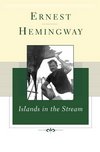
You by Austin Grossman
My rating: 4 of 5 stars
Let’s admit something about video games. They are boring. They induce a state of focus that is totally absorbing but useless — like the ghost of work or creative play, but without engaging the world in any way. They are designed to focus attention but don’t train you to overcome the obstacles to being focused. They are fun but don’t tend to make a person more interesting. The rewards are false coin — they are rarely satisfying or moving. More often, the offer something like a hunger for the next game, promising a revelation or catharsis that they never quit fulfill, that they don’t even know how to fulfill. They work in a single small corner of the emotional world, stirring feelings of anger or fear or a sense of accomplishment; they don’t reach for any kind of fuller experience of humanity.
But when I thought about story, I felt I couldn’t really be wrong.
Because when I lay awake at night I wanted to be in a story; I wanted it so badly it was an ache in my bones. Anything story but the story I was in, of early disappointment and premature world-weariness. I wanted to feel like I was at the start of a story worth being in, instead of being twenty-eight and feeling like my story was already over, like it was the most boring, botched story imaginable.
I used to love books in which somebody from our reality got to go to another world. The Narnia books, the Fionavar books. Isn’t that what we could do, take people into another world? If not, why not? Why couldn’t that be what we did?
There’s the central focus of YOU: A Novel. Can someone — genius programmer or rookie game designer — take this difficult-to-vocalize aim for video games and run with it? What stands in the way — technology or human ability or maybe human frailty?
If you take the love of video games and late 20th Century American pop culture from Cline’s Ready Player One; the ability of Michael Chabon in The Amazing Adventures of Kavalier & Clay to tell a compelling story while also giving a history of a creation of a medium; and mix them with Lev Grossman’s Magician series’ sense of disillusionment that comes from childhood loves and obsessions meeting with the real world — you might get something like this.
One word kept popping up in my notes: bittersweet. And in checking around on the Internet a bit, I saw that I’m not the only one who thought that way — on the one hand, nice to see that I got the same read on the book as many/most. On the other hand, it would’ve been nice to have an insight all to myself. Whether it was in the flashbacks, or the contemporary plot — none of the successes where wholly positive, there was always something wistful about it. Very few of the losses were without some measure of victory, either, it should be said. But the measures were typically small. There’s a lot of missed opportunities — years’ worth — a lot of regret and sadness over them, especially the ones that can’t be recreated.
The other novels I mentioned earlier all share a thread with YOU about friendship — particularly that kind of friendship that develops early in life, the kind that continues through the years, and really shapes your future: your personality, loyalties, loves — for good or ill. How in many cases your adult life is a reaction to, or development of, these friendships. And that’s where Grossman is his sweetest, and probably his woeful.
That’s not to say this is a depressing book — there’s a lot of fun, there’s a challenge, there’s personal growth, and an element of hope throughout. The protagonist, Russell, finds his roots, finds comfort and a place to grow. Other characters do, too. There’s a sense of history being made here, looking at the rise of FPS games, the early days of E3, remembering the first computers introduced in public schools and the general lack of ability of the faculty to know what to do with them. The nostalgia factor, for even people like me that were on the fringes of this culture is high. I’m not much of a gamer (though I’d like to be — just don’t have the time), but the game — or the series of games — is as incredible as it is impossible (especially given the technology available at the time, but I think even if the first installment came out now, it’d be impossible.) I’d play this — or I’d watch my 15 year-old son play it/obsess over it.
There are little observations and asides sprinkled throughout the text that add so much personality and flavor to the narrative — like this in the middle of this paragraph:
After ten weeks of work, we could play out an altercation between an eighteenth-century French mercenary with a short sword and buckler (a saucer-size shield with a pointed spike — as Eskimo language is to snow, so archaic English is to “metal objects designed to cause harm”) and a Roman legionnaire from the age of Marius, with his gladius, Vae victis!
That made me chuckle aloud, showed me a lot about these characters and the game. Passages like this are what elevate this book.
 Beauty Queens
Beauty Queens














